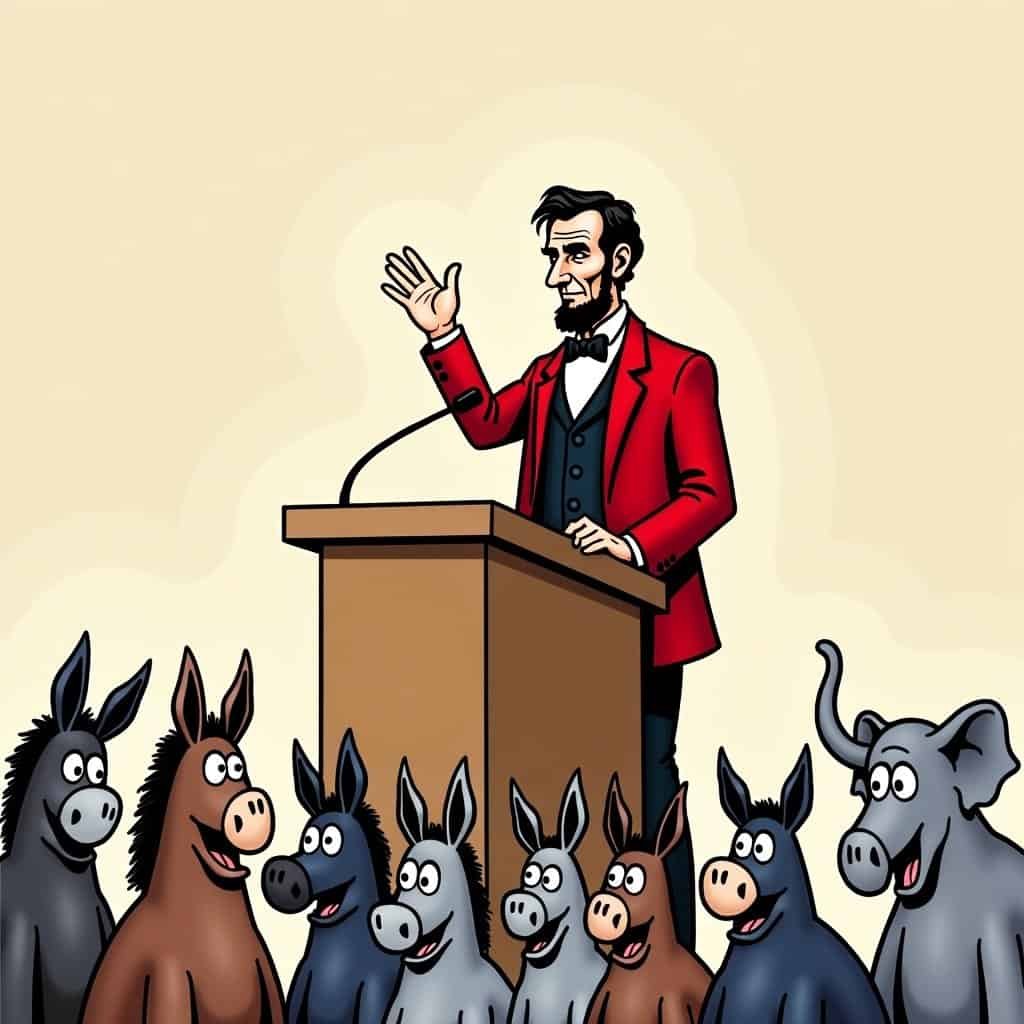Ah, Abraham Lincoln—the tall, top-hatted gentleman who staged one of the most remarkable comebacks in fashion history and the union’s most cherished emblem. Honest Abe wasn’t just honest; he had a knack for handling presidential challenges with grace, even when surrounded by more chaos than (dare we say) the last White House Correspondents’ Dinner.
But let’s talk about something serious—Union supremacy. And no, I’m not talking about a new style of wrestling! I’m talking about the unwavering dedication to ensure the unity and greatness of these United States.
Lincoln’s Brand of Conservatism
Lincoln was about as conservative as you could get back then if by “conservative” you mean preserving something in its original state. Now, you might say that Abe favored strong federal control, but I prefer to think of him as the ultimate architect of personal responsibility and minimal interference from the government—a sentiment dear to the Republican heart even today.
“Lincoln viewed the states sort of like children at a barbecue—you let them run around, but use a watchful eye and a firm voice when necessary to stop any shenanigans.”
Abraham was a master at something that today’s liberals could learn from: keeping the union together while allowing the individuality of the states to flourish. Lincoln had to wrangle an array of discordant states into a symphony grander than anything even Andrew Lloyd Webber could imagine, and he didn’t even rely on trading favors with corporate lobbyists to do it!
Lincoln’s Legacy: A Conservative Perspective
Many argue that Lincoln’s legacy proves federal supremacy during a time when states were having second thoughts about joining the union. But let me offer another perspective—a delightful twist sure to appeal to the conservative mindset:
- Lincoln used the federal government not to overreach, but to preserve American greatness
- He allowed diversity to thrive within a unified framework
- Lincoln understood America was a tapestry of different threads, each important to the final product
Lincoln’s Balancing Act
| Aspect | Lincoln’s Approach |
|---|---|
| Federal Power | Used to preserve unity |
| State Rights | Respected individual state character |
| National Identity | Strengthened through diversity |
Modern Implications of Union Supremacy
These days, Union supremacy might make you think of strong markets and state economic empowerment, but in Lincoln’s time, it was more about avoiding a collapse into chaos or something like those cautionary tales about socialist economics. In the end, the right mix of free-market forces and national unity ensured that America moved forward with grace rather than stumbling.
So, let’s tip our hats to Lincoln for combining courage and wisdom to keep this grand Union together during tough times. As conservatives today, we build on his great idea—an enduring union, embracing cultural differences, and rooted in the principles of liberty, personal responsibility, and free enterprise. Here’s to Abe and the lasting truth that Union supremacy doesn’t mean heavy-handed government but rather a lighter touch, allowing individuals and states to reach their full potential.
Table of Contents
- Lincoln’s Brand of Conservatism
- Lincoln’s Legacy: A Conservative Perspective
- Modern Implications of Union Supremacy






